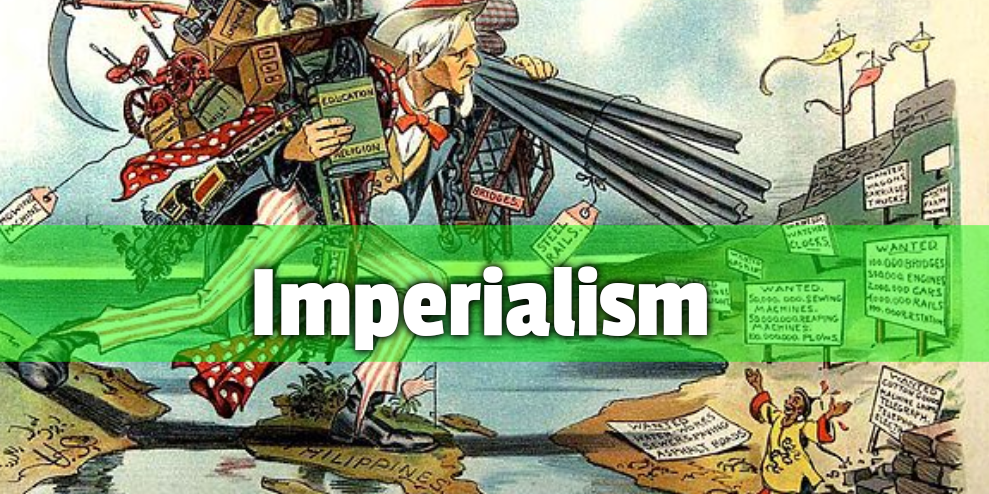Imperialism

Stage of capitalism as a global system that completes its progressive development and immerses it in its historical phase of decadence, from which capitalism goes from being an incentive to being an obstacle to the free development of the productive forces it has created.
Origins of Imperialism
Imperialism is produced by the absence of sufficient extra-capitalist markets to realize the whole of the produced surplus value and to make accumulated capital profitable. Extra-capitalist markets are those formed by artisans, autonomous peasants and in general by producers of mercantile value who do not participate in the expanded reproduction of capital, whether they operate within or outside the borders of a given national state.
Extra-capitalist markets outside the bourgeois national states begin to be insufficient in volume to absorb the surplus value generated by them. Consequently, the relations between the constituted states, between them and their colonies and the organization of capital in each one begin to transform. This transformation means the entry into a new historical stage of capital's development: imperialism.
In the internal organization of capital, imperialism implies a further development of the concentration and centralization of capital. The merger of industrial and banking capital into finance capital takes place and finance capital is increasingly linked to the state and monopolies. Militarism appears for the first time as a global trend and the struggle to find a destination for over-accumulated capital becomes a struggle to export capital.
Imperialism gives shape to the final stage of rising capitalism. The extension and deepening of its conditions leads to the phase of decadence of the system, whose main characteristics it configures, radically transforming with them the conditions of class struggle. The concentration and centralization of capital around finance capital and the state, will become the generalization of state capitalism and the absorption of the trade union in the state; the chronic saturation of the world market in a globalization of militarism coupled with the impossibility of independent development of national capital -and therefore the impossibility of national liberation with a progressive character; and, in general, the difficulties of capital to freely develop the productive forces in a definitive split between growth and development.
http://dictionary.marxismo.school/Imperialism